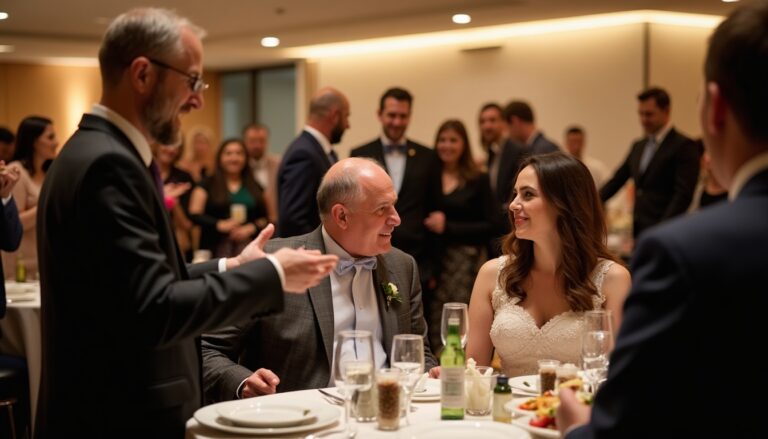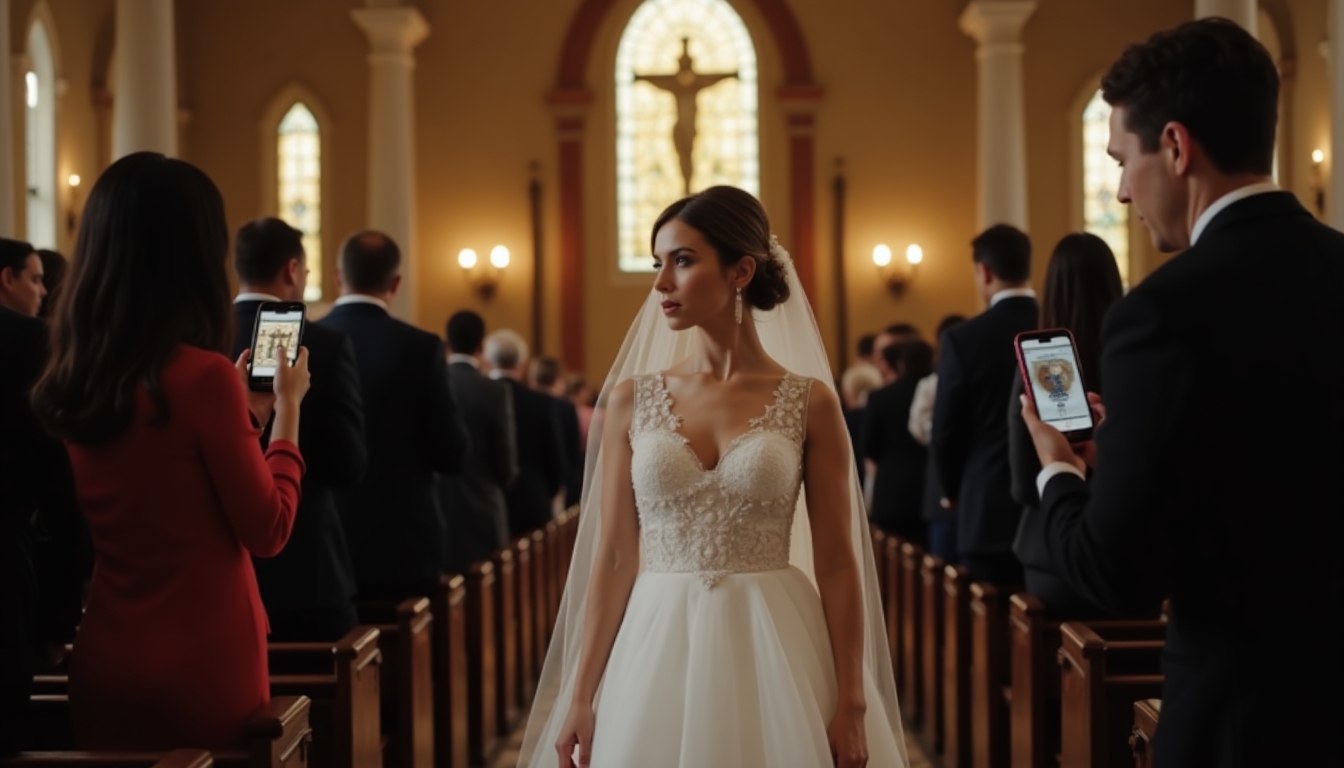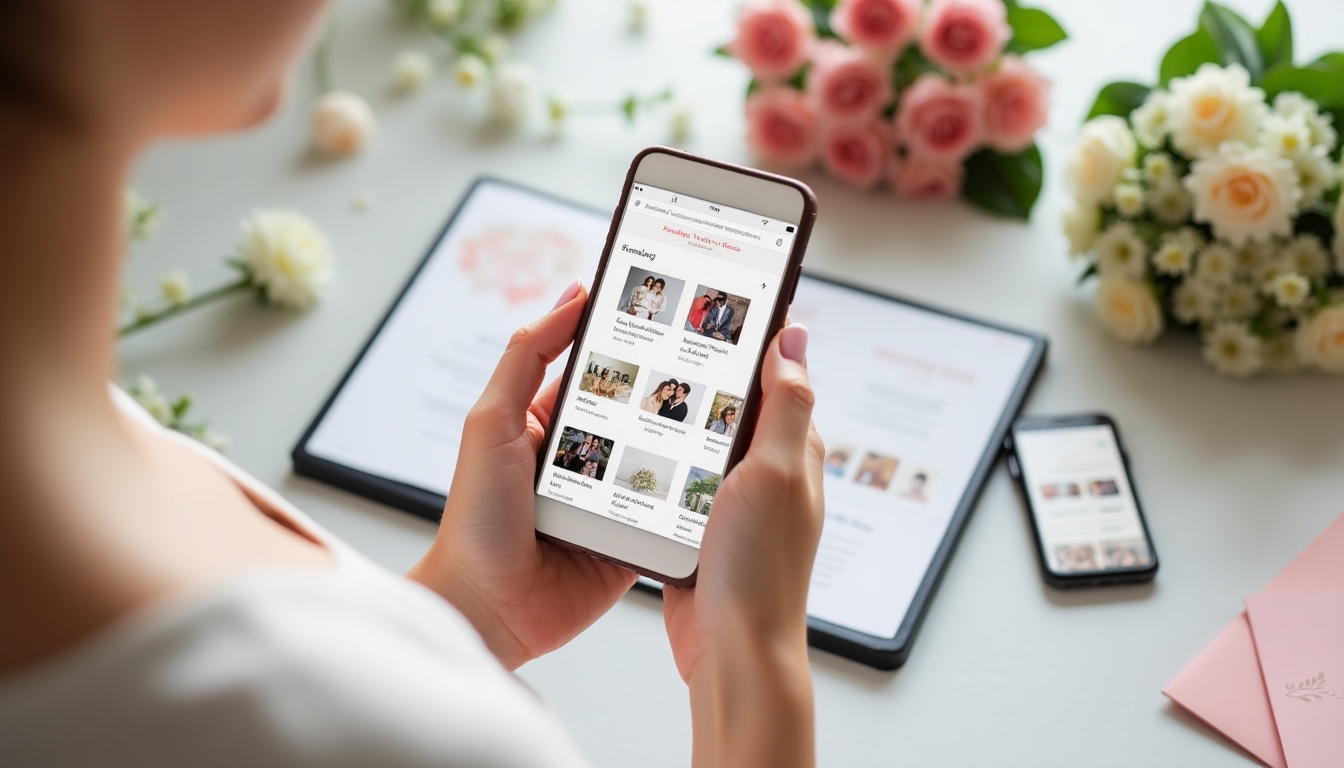Planning a wedding that makes every guest feel valued and included requires thoughtful consideration of diverse needs, backgrounds, and accessibility requirements.
Creating an environment where all guests can fully participate means considering physical, cultural, dietary, and social factors that could impact their experience.
This guide walks you through practical steps to ensure your celebration is welcoming and accessible for everyone on your guest list.
Physical Accessibility
- Choose venues with ramp access, elevators, and accessible restrooms
- Reserve accessible parking spaces near the entrance
- Ensure pathways are wide enough for wheelchairs and mobility devices
- Provide seating options at different heights during both ceremony and reception
Communication & Information
Include clear accessibility information on wedding invitations and your wedding website.
- Detailed directions and parking instructions
- Contact person for accommodation requests
- Available support services (sign language interpreters, etc.)
- Floor plans showing accessible routes
Dietary Considerations
Work with your caterer to accommodate various dietary requirements.
- Vegetarian and vegan options
- Gluten-free alternatives
- Halal or Kosher meals
- Clear labeling of all food items
- Allergen information readily available
Cultural Sensitivity
- Research cultural traditions of guests
- Consider timing around religious observances
- Provide appropriate prayer spaces if needed
- Include multilingual signage where appropriate
Sensory Considerations
Create comfortable environments for guests with sensory sensitivities.
- Designate quiet spaces for breaks
- Control music volume in different areas
- Provide printed programs for those with hearing impairments
- Consider lighting levels throughout the venue
Family Dynamics
- Create inclusive seating arrangements
- Consider +1 policies carefully
- Use gender-neutral language on invitations
- Accommodate different family structures
Children and Elderly Guests
- Set up kid-friendly activity stations
- Arrange for childcare services if needed
- Ensure comfortable seating for elderly guests
- Plan appropriate meal options for different age groups
Budget-Friendly Inclusion
- Offer affordable accommodation options
- Consider transportation assistance
- Provide virtual attendance options
- Create flexible payment plans for wedding party expenses
Making Your Wedding Truly Welcoming
Remember that inclusive planning isn’t about checking boxes—it’s about creating genuine connections and ensuring everyone can celebrate comfortably.
Train your vendors and wedding party members about accessibility features and inclusion practices.
Consider appointing an inclusion coordinator to handle specific requests and ensure all accommodations are properly implemented.
Guest Comfort & Safety
- Have trained staff available for assistance
- Provide clear emergency protocols
- Ensure proper temperature control
- Set up hydration stations throughout venue
- Create shaded areas for outdoor events
Technology Integration
- Offer hybrid attendance options
- Provide charging stations
- Use apps for real-time updates
- Create accessible digital materials
- Set up visual displays for announcements
Transportation & Logistics
- Arrange shuttle services
- Coordinate with accessible taxi services
- Create clear pick-up/drop-off zones
- Provide detailed transportation schedules
- Consider proximity to public transit
Creating Lasting Memories For All
An inclusive wedding celebration strengthens relationships and creates meaningful experiences for everyone involved. By implementing these thoughtful considerations, you’re not just planning an event – you’re building a community celebration that honors all your guests.
Remember that accessibility and inclusion benefit everyone, not just those with specific needs. When your wedding welcomes all guests fully and equally, it truly becomes a celebration of love, unity, and shared joy.
Take time to gather feedback from guests about their needs, remain flexible in your planning, and focus on creating an atmosphere where everyone feels valued and celebrated. Your careful attention to inclusion will help create cherished memories that last a lifetime.
FAQs
- How can I make my wedding ceremony inclusive for guests of different religions and cultures?
Include elements from different traditions, provide explanations in the program, and consider having multiple officiants or ceremonies to honor different faiths. - What accommodations should I make for guests with mobility challenges?
Ensure all venues are wheelchair accessible, provide clear pathways, reserve accessible seating, and offer transportation between venues if needed. - How do I handle dietary restrictions and food allergies respectfully?
Include meal options for various dietary needs (vegan, kosher, halal, gluten-free), clearly label all food items, and train catering staff on cross-contamination prevention. - What’s the best way to address LGBTQ+ couples and guests on invitations and seating arrangements?
Use gender-neutral language, ask for preferred names and pronouns, and avoid traditional gender-based seating arrangements or couple assumptions. - How can I make my wedding accessible for guests with hearing or visual impairments?
Provide sign language interpreters, large-print materials, proper lighting, and consider audio descriptions for key moments. - What considerations should I make for neurodivergent guests?
Create quiet spaces for overwhelmed guests, provide noise-canceling headphones, maintain predictable schedules, and consider sensory-friendly lighting and music options. - How do I address language barriers at my multicultural wedding?
Provide multilingual programs, signs, and announcements, hire interpreters if needed, and consider having bilingual staff or volunteers available. - What should I consider when planning activities for guests of different age groups?
Include age-appropriate entertainment options, create designated spaces for children and elderly guests, and ensure activities are adaptable for different physical abilities. - How can I make solo guests feel as welcomed as coupled guests?
Avoid “plus one” pressures, create mixed seating arrangements, and plan inclusive activities that don’t emphasize couple-focused traditions. - What’s the best way to communicate accessibility information to guests?
Include detailed accessibility information on wedding websites, invitations, and provide a contact person for specific accommodation requests.






